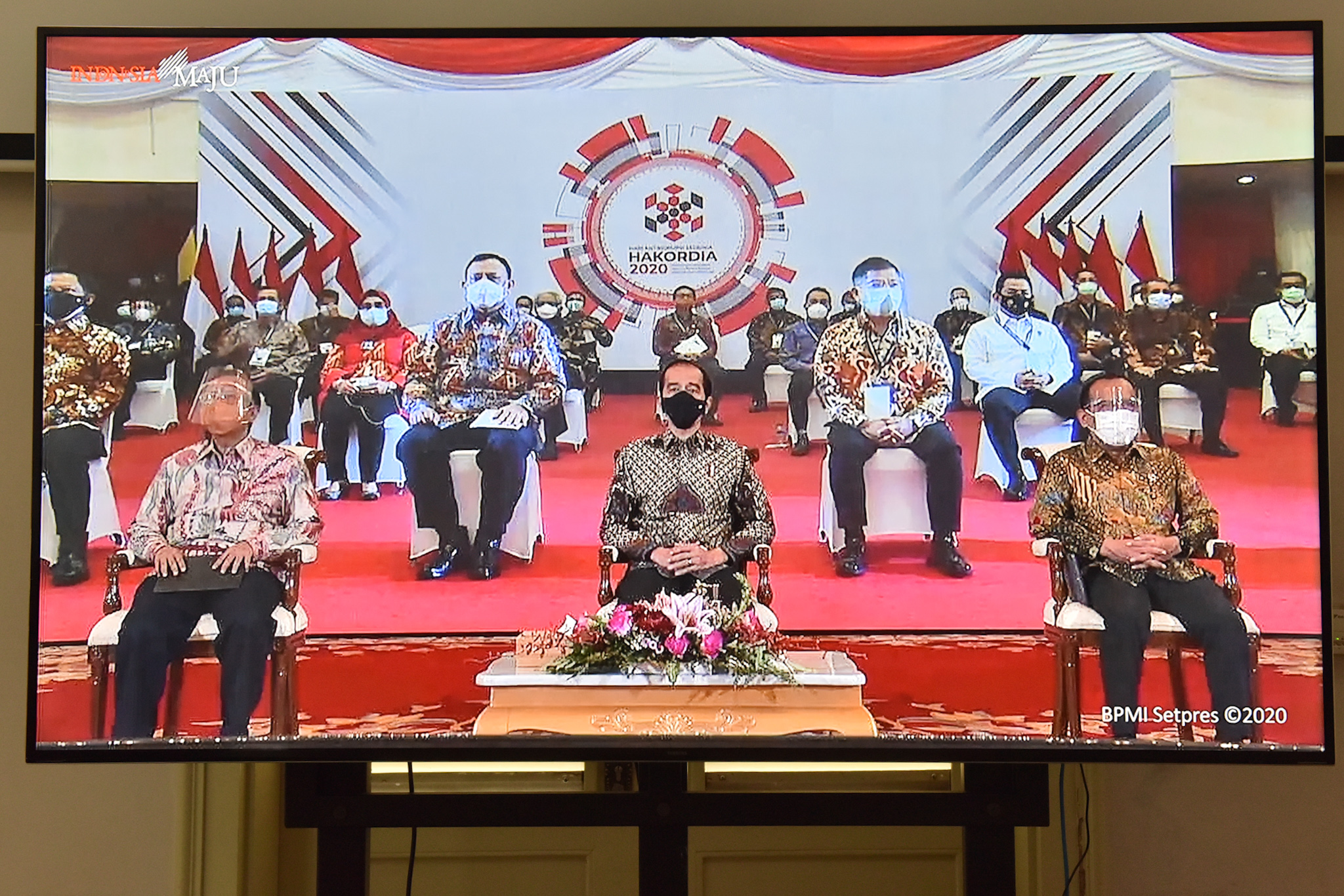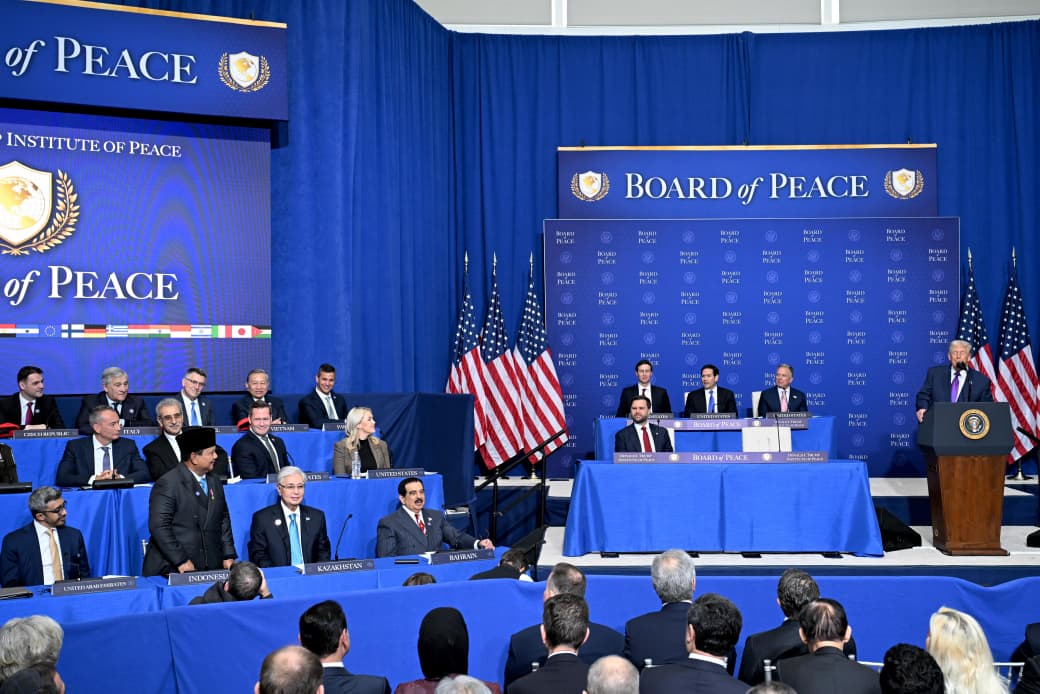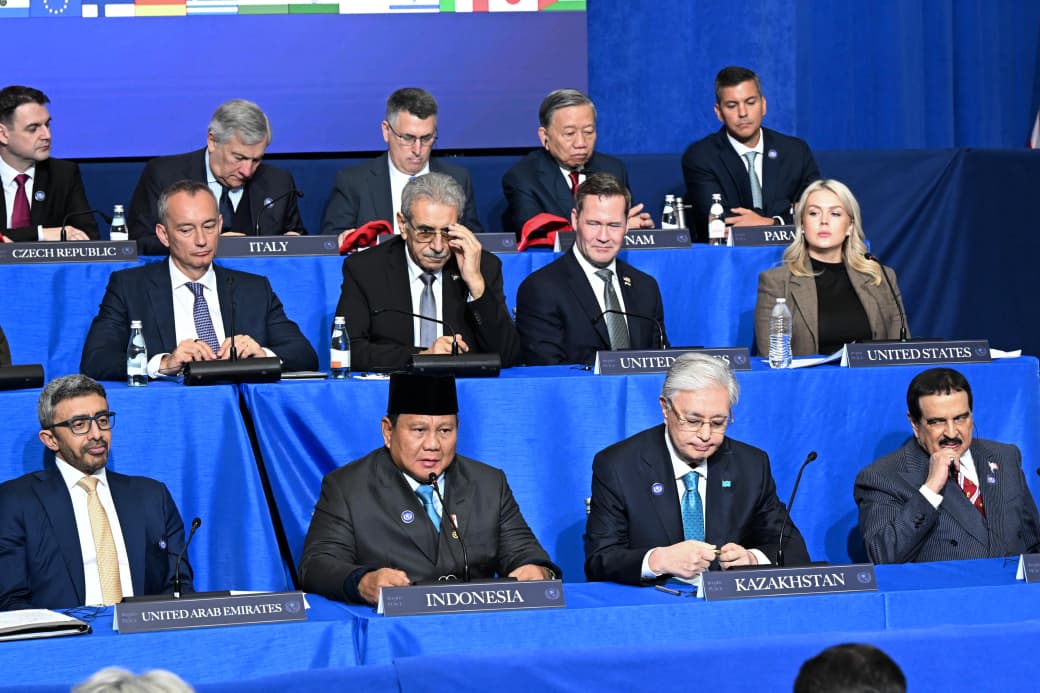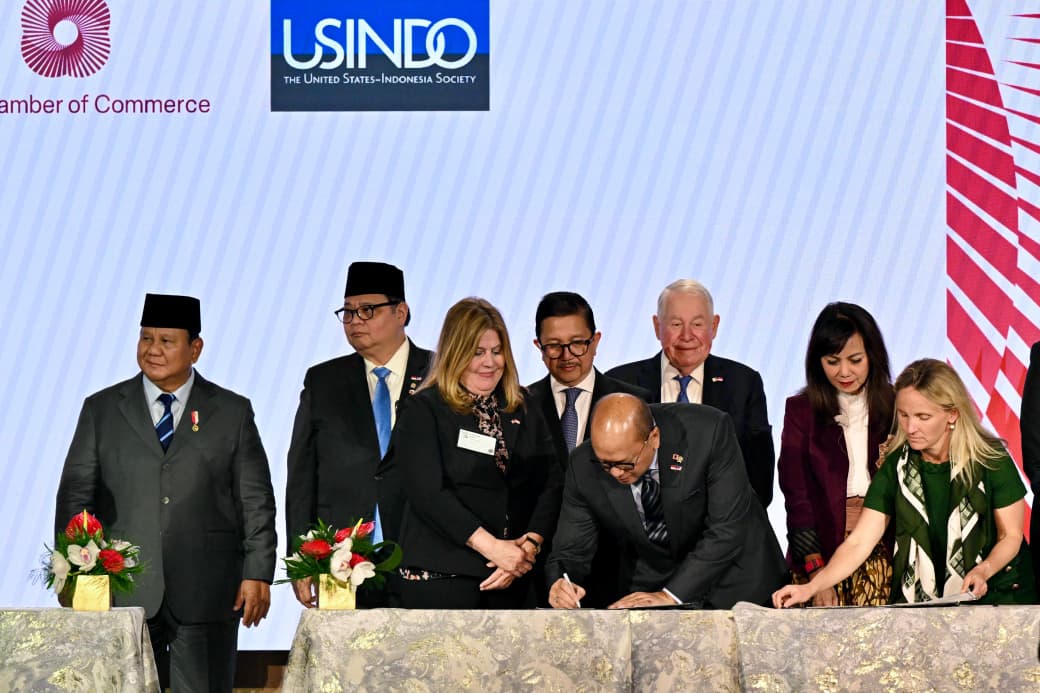Chairman of KPK: Latent Danger of Corruption Can Hinder Indonesia’s Purposes

The Commemoration of the 2020 International Anti-Corruption Day, Wednesday (16/12). (Photo by: PR/Jay)
The Commemoration of the 2020 International Anti-Corruption Day (Harkodia) is expected to raise awareness and determination from all elements of the nation so that corruption will not be considered as a culture but rather as a latent danger that can hinder the realization of the country’s purposes, Chairman of the Corruption Eradication Commission (KPK) Firli Bahuri has said.
“We should make corruption as a latent danger that can hinder the country’s purposes in protecting all the Indonesian people and the land that has been struggled for, improving public welfare, educating the life of the people and actively participating toward the establishment of a world order based on freedom, perpetual peace and social justice,” the Commission’s Chairman said during the Commemoration of the 2020 International Anti-Corruption Day, Wednesday (16/12).
This year’s Harkodia adopted a theme ‘Raising the Awareness of All Elements of the Nation in an Anti-Corruption Culture’, which is relevant to the spirit of corruption eradication that can be optimized through the role of all elements of society.
“An anti-corruption culture is expected to grow and develop in all elements of society and all the nation’s children,” Firli said.
Firli also called on all relevant parties to strengthen their determination and commitment to constantly eradicate corruption.
“The KPK wants to strengthen commitment and cooperation between stakeholders in corruption prevention and eradication and to expand active community involvement in socializing anti-corruption values,” he said.
According to him, the KPK has applied three approaches in the strategy of eradicating corruption. They are as follows:
First, the community education approach. “This approach aims to provide an understanding of the dangers of corruption so the public will not involve in committing corruption,” Firli explained.
Second, the preventive approach. “This approach aims to improve the system to reduce corruption opportunities,” he added.
Third, the repression approach. “This approach aims to carry out strict, accountable, professional law enforcement, and uphold the principles of humanity through the convictions of corruption perpetrators and restitution of state losses. Thus, it can raise the feeling of fear and awareness of the law to prevent corruption,” he concluded. (FID/UN) (RIF/LW)







